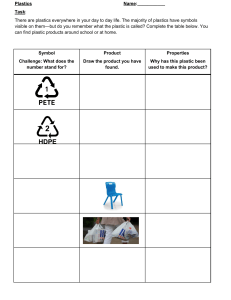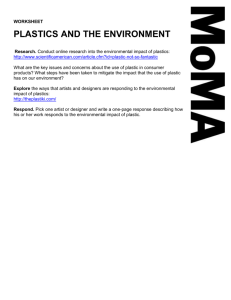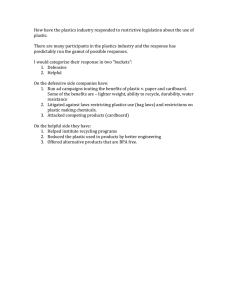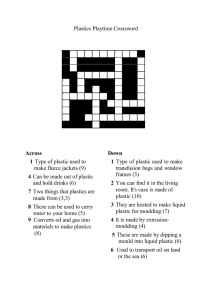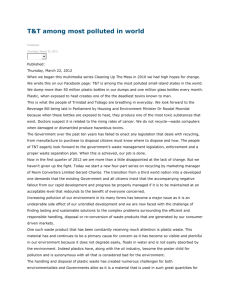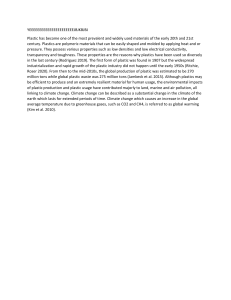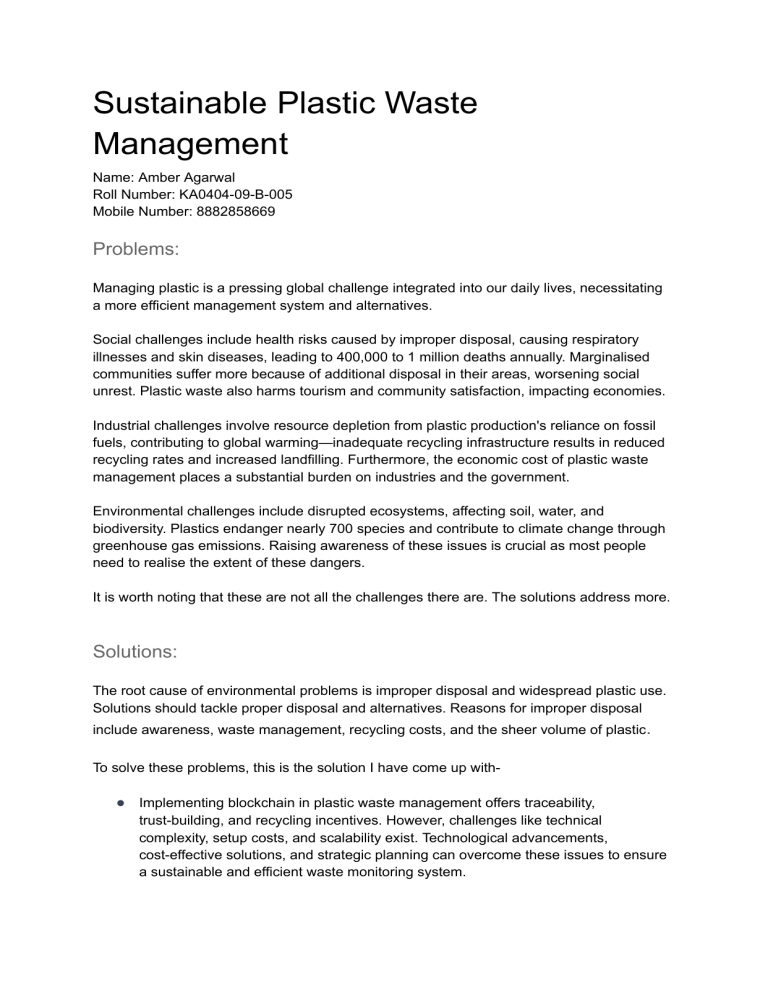
Sustainable Plastic Waste Management Name: Amber Agarwal Roll Number: KA0404-09-B-005 Mobile Number: 8882858669 Problems: Managing plastic is a pressing global challenge integrated into our daily lives, necessitating a more efficient management system and alternatives. Social challenges include health risks caused by improper disposal, causing respiratory illnesses and skin diseases, leading to 400,000 to 1 million deaths annually. Marginalised communities suffer more because of additional disposal in their areas, worsening social unrest. Plastic waste also harms tourism and community satisfaction, impacting economies. Industrial challenges involve resource depletion from plastic production's reliance on fossil fuels, contributing to global warming—inadequate recycling infrastructure results in reduced recycling rates and increased landfilling. Furthermore, the economic cost of plastic waste management places a substantial burden on industries and the government. Environmental challenges include disrupted ecosystems, affecting soil, water, and biodiversity. Plastics endanger nearly 700 species and contribute to climate change through greenhouse gas emissions. Raising awareness of these issues is crucial as most people need to realise the extent of these dangers. It is worth noting that these are not all the challenges there are. The solutions address more. Solutions: The root cause of environmental problems is improper disposal and widespread plastic use. Solutions should tackle proper disposal and alternatives. Reasons for improper disposal include awareness, waste management, recycling costs, and the sheer volume of plastic. To solve these problems, this is the solution I have come up with- ● Implementing blockchain in plastic waste management offers traceability, trust-building, and recycling incentives. However, challenges like technical complexity, setup costs, and scalability exist. Technological advancements, cost-effective solutions, and strategic planning can overcome these issues to ensure a sustainable and efficient waste monitoring system. ● Investing in research on plastic-digesting bacteria and enzymes presents a promising solution for reducing plastic pollution. These innovations break down plastic into environmentally friendly materials, offering eco-friendly benefits. However, challenges include finding efficient enzymes for all plastics and potential risks with plastic-eating bacteria, like Ideonella Sakainsis. To encourage usage, imposing higher costs on non-digestible plastics could motivate people to choose environmentally friendly alternatives. ● Consider eco-friendly alternatives like biodegradable plastics from renewable sources to minimise plastic use. However, biodegradable plastic production competes for land with food crops. Mycelium-based packaging offers a low carbon footprint despite facing higher costs, moisture sensitivity, and limited shelf life. Enhance recycling through AI-enabled sorting to make these alternatives viable despite drawbacks. As they have their disadvantages, we should make them necessary to use instead of plastics only wherever its usage is possible. ● Raising plastic prices and reducing eco-friendly plastic costs may strain the economy temporarily but resolve plastic-related issues effectively. Creating this system demands time and effort, but it can save the Earth with public support. Conclusion: The integration of blockchain in waste management enhances operational efficiency and cost savings. Implementing a blockchain-based rewards system incentivises proper plastic disposal, contributing to a zero-waste future. Additionally, leveraging plastic-digesting bacteria and enzymes presents a promising solution for reducing pollution, even though they need further development and may take some time. Promoting eco-friendly alternatives like biodegradable plastics produced on non-agricultural land minimises environmental impact. Raising plastic prices and reducing eco-friendly plastic costs may strain the economy temporarily, but it can effectively resolve plastic-related issues. Encouraging people to choose environmentally friendly alternatives can reduce the usage of non-digestable plastics. This transition can drive innovation and research in the field of biodegradable plastics, ultimately leading to a more sustainable and circular economy.
